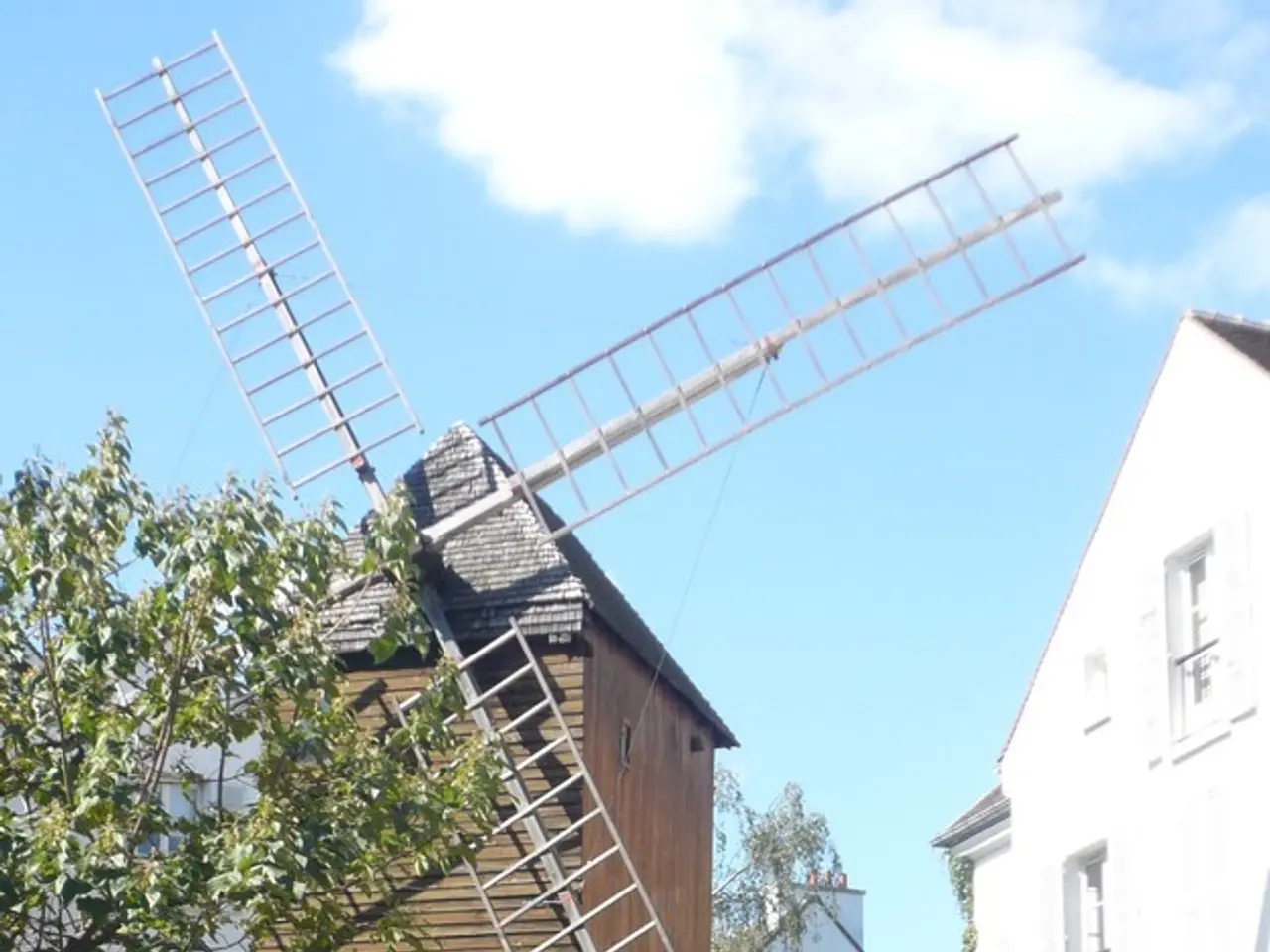Wind and solar power development, totalling 600MW, to be undertaken by Gamuda in Tasmania, supported by Large-Scale Battery Energy Storage Systems.
In the heart of Tasmania, Australia, Malaysian infrastructure company Gamuda is making significant strides in the renewable energy sector. Through its Australian subsidiary, Gamuda Holdings Pty Ltd, the firm is developing two major projects: the Weasel Solar Farm and the Cellars Hill Wind Farm. These projects are part of a 1.2 GW renewable energy portfolio that combines 600 MW of wind and solar capacity, plus up to 600 MW of battery energy storage systems (BESS)[1][2][4].
The Weasel Solar-Plus-Storage Project and the Cellars Hill Wind-Plus-Storage Project have received 'Major Project' status from the Tasmanian government in February 2025, signalling their importance to the region's clean energy future.
### Key Project Details
These landowner-led projects, with the Downie Family, longstanding Tasmanian pastoral landowners, playing a central role, aim to create local employment opportunities and provide energy rebates for households located within a 12 km radius of the sites[1]. The development partners, Gamuda and Alternate Path, are committed to aligning renewable energy expansion with local interests and sustainability principles.
The Weasel Solar-Plus-Storage Project, located 9km north of Bothwell in Tasmania's Midlands region, will span 270 hectares and use single-axis tracking technology[5]. It will have a solar generation capacity of 250MW and a battery energy storage system (BESS) capacity of 144MW/576MWh[6]. The project's total cost is estimated at AU$1.5 billion[7]. Construction for the Weasel Solar-Plus-Storage Project is projected to begin in 2027, pending further approvals[2].
The Cellars Hill Wind-Plus-Storage Project, a proposed AU$1.5 billion (US$940 million) project, will deliver 350MW of wind generation and plans for a 600MW/2,400MWh BESS[3]. The project's location has yet to be disclosed. Construction for the Cellars Hill Wind-Plus-Storage Project is projected to begin in 2028, pending further approvals[2].
Gamuda will hold equity stakes in both projects, securing development rights and executing them under sole-source EPC contracts[1][2]. The projects are still subject to approval by the Foreign Investment Review Board.
### Significance
The projects represent a significant clean energy investment in Tasmania, geared toward expanding renewable generation capacity and integrating substantial battery storage to enhance grid stability and energy reliability. The Weasel Solar-Plus-Storage Project supports agrivoltaics, combining clean energy generation with sheep grazing[6]. The Cellars Hill Wind-Plus-Storage Project is one of the largest battery co-located wind projects proposed in the region[3].
In summary, Gamuda's Weasel Solar-Plus-Storage and Cellars Hill Wind-Plus-Storage projects are progressing as part of a well-structured, community-focused renewable energy portfolio in Tasmania, with construction starting from 2027 and a strong emphasis on local benefits and regulatory compliance.
- The construction of the Weasel Solar-Plus-Storage Project and the Cellars Hill Wind-Plus-Storage Project, under project management by Gamuda, falls within the infrastructure industry and is financed to the tune of AU$1.5 billion each, as part of Gamuda's renewable energy project portfolio.
- Environmental sustainability is a key focus for these projects, as the Weasel Solar Farm seeks to support agrivoltaics by integrating sheep grazing with clean energy generation, while the Cellars Hill Wind Farm plans to be one of the largest battery co-located wind projects in the region.
- The projects' development partners, Gamuda and Alternate Path, aim to align renewable energy expansion with local interests and sustainability principles, creating local employment opportunities and providing energy rebates for households within a 12 km radius of the sites.
- The projects' entirety, from development rights to construction, will be executed by Gamuda under sole-source EPC contracts, subject to approval by the Foreign Investment Review Board and further necessary approvals.




